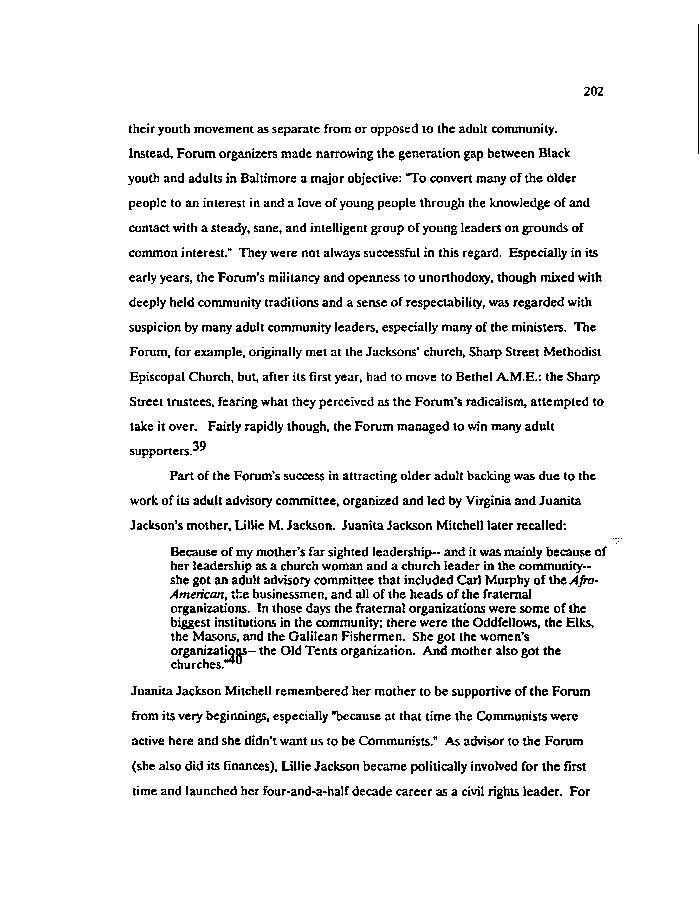|
202
their youth movement as separate from or opposed to the adult community.
Instead, Forum organizers made narrowing the generation gap between Black
youth and adults in Baltimore a major objective: To convert many of the older
people to an interest in and a love of young people through the knowledge of and
contact with a steady, sane, and intelligent group of young leaders on grounds of
common interest." They were not always successful in this regard. Especially in its
early years, the Forum's militancy and openness to unorthodoxy, though mixed with
deeply held community traditions and a sense of respectability, was regarded with
suspicion by many adult community leaders, especially many of the ministers. The
Forum, for example, originally met at the Jacksons' church. Sharp Street Methodist
Episcopal Church, but, after its first year, had to move to Bethel A.M.E.: the Sharp
Street trustees, fearing what they perceived as the Forum's radicalism, attempted to
take it over. Fairly rapidly though, the Forum managed to win many adult
•so
supporters.
Part of the Forum's success in attracting older adult backing was due to the
work of its adult advisory committee, organized and led by Virginia and Juanita
Jackson's mother, Lillie M. Jackson. Juanita Jackson Mitchell later recalled:
Because of my mother's far sighted leadership— and it was mainly because of
her leadership as a church woman and a church leader in the community-
she got an adult advisory committee that included Carl Murphy of the Afro-
American, the businessmen, and all of the heads of the fraternal
organizations. In those days the fraternal organizations were some of the
biggest institutions in the community; there were the Oddfellows, the Elks,
the Masons, and the Galilean Fishermen. She got the women's
organizations- the Old Tents organization. And mother also got the
churches. °
Juanita Jackson Mitchell remembered her mother to be supportive of the Forum
from its very beginnings, especially "because at that time the Communists were
active here and she didn't want us to be Communists." As advisor to the Forum
(she also did its finances), Lillie Jackson became politically involved for the first
time and launched her four-and-a-half decade career as a civil rights leader. For
|

